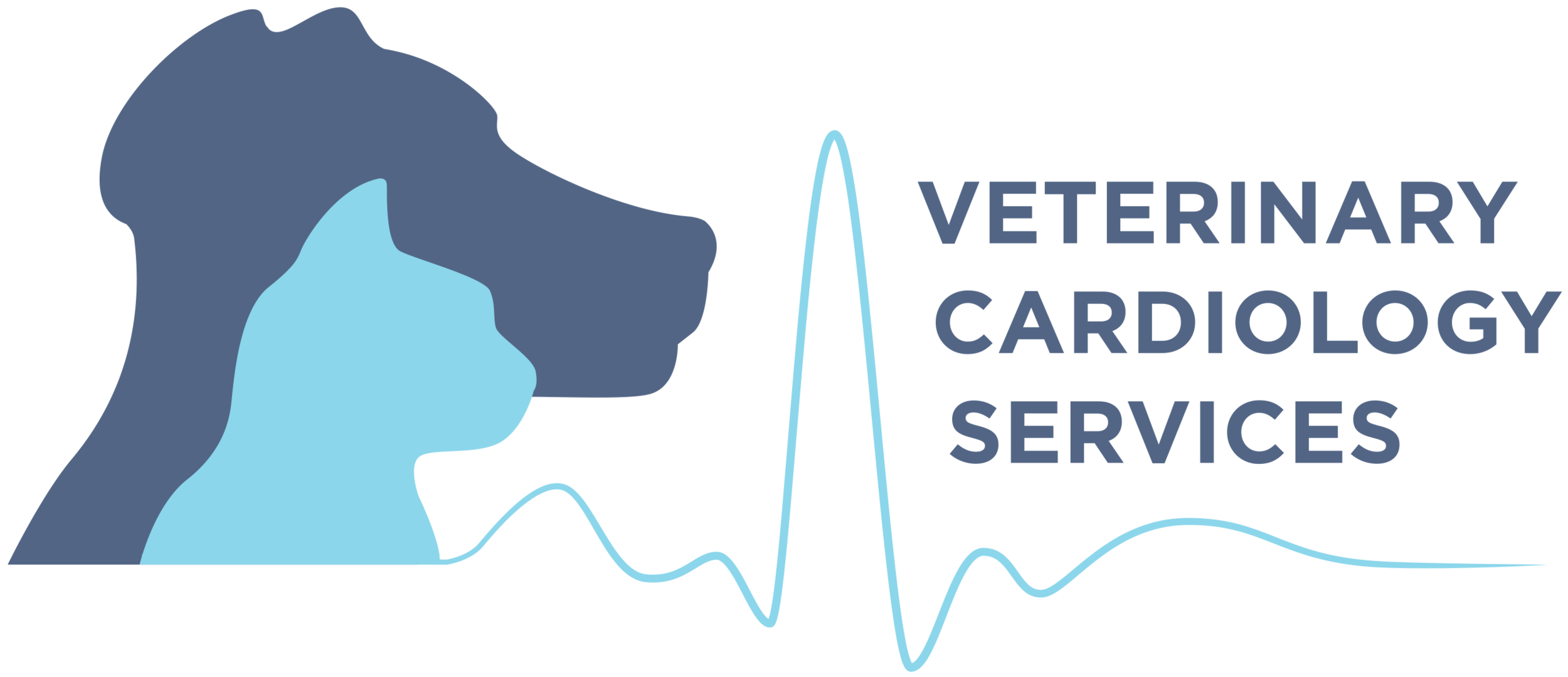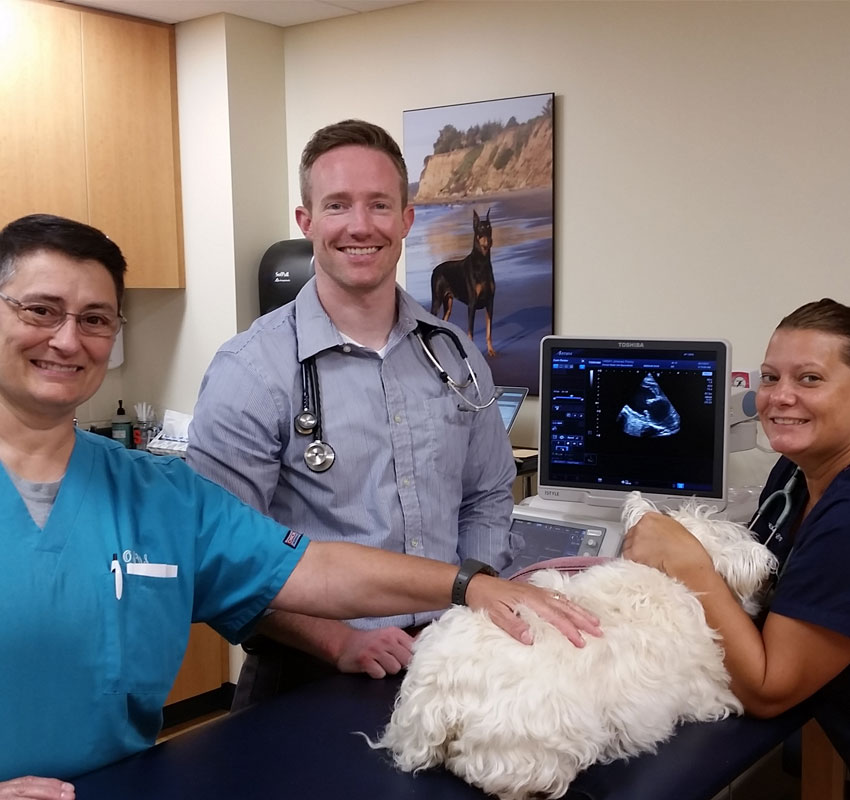Checking Out the Vital Solutions Used by a Veterinary Cardiologist: Comprehending Ultrasound and CT Scan Techniques
Veterinary cardiologists play a vital duty in the health and wellness of pets by identifying and treating various heart conditions. They use advanced imaging techniques, such as heart ultrasound and CT scans, to supply exact assessments. Each method has its distinctive advantages and applications. Understanding these strategies is necessary for pet proprietors looking for the most effective care for their friends. What variables should family pet owners consider when picking between these diagnostic devices?

The Function of Vet Cardiologists in Pet Health Care
Vet cardiologists play a crucial duty in the healthcare of animals, concentrating especially on diagnosing and treating heart-related problems. They possess specialized training that allows them to interpret complex diagnostic tests and determine different cardio issues. These experts make use of innovative strategies, such as echocardiography and electrocardiography, to assess heart feature and framework accurately.Veterinary cardiologists additionally establish customized treatment plans that might consist of medications, lifestyle modifications, and, sometimes, surgical interventions. Their proficiency reaches educating pet owners about heart health, emphasizing the significance of normal check-ups and early detection of potential troubles. Collaboration with general vets is essential, as it ensures extensive treatment for pet dogs with believed heart concerns. By providing specialized services, vet cardiologists substantially boost the lifestyle for animals and supply peace of mind for their proprietors, enhancing the value of heart health and wellness in overall pet health.
Typical Heart Problems in Animals
Common heart issues in pet dogs can substantially affect their health and wellness and top quality of life. Heart murmurs, various sorts of cardiomyopathy, and congenital heart issues are among one of the most prevalent problems that veterinarians run into. CT Scans For Animals. Comprehending these concerns is necessary for animal proprietors to guarantee prompt medical diagnosis and proper therapy
Heart Murmurs in Pets
Heart whisperings can be a resource of worry for pet owners, they are not constantly indicative of severe wellness issues. A heart whispering is an irregular audio produced by stormy blood circulation within the heart. In pets, these murmurs can be triggered by numerous elements, consisting of genetic heart defects, valve concerns, or also tension throughout evaluations. Several pets with heart murmurs lead typical lives without substantial wellness effects. To establish the underlying reason, veterinary cardiologists typically utilize analysis techniques such as echocardiograms and Doppler ultrasounds. Early discovery and analysis are important, as they may assist take care of any kind of possible heart issues effectively. Animal owners are motivated to consult their vet for a thorough evaluation if a heart murmur is spotted.
Cardiomyopathy Kind Explained
Cardiomyopathy incorporates a team of illness influencing the heart muscular tissue, bring about compromised cardiac feature in family pets. One of the most typical types include dilated cardiomyopathy (DCM), hypertrophic cardiomyopathy (HCM), and limiting cardiomyopathy (RCM) DCM mainly impacts dogs, creating the heart to increase the size of and damage, which reduces its capability to pump blood properly. On the other hand, HCM is a lot more common in felines, characterized by the enlarging of the heart walls, typically resulting in blocked blood flow. RCM, though much less common, takes place when the heart muscular tissue ends up being rigid, restricting its capability to full of blood. Each type provides special challenges in diagnosis and therapy, requiring specialized veterinary cardiological examination to guarantee peak management and take care of affected animals.
Congenital Heart Problems
Congenital heart flaws represent a significant group of cardiac concerns in family pets, unique from obtained conditions such as cardiomyopathy - CT Scans For Dogs. These defects are architectural abnormalities existing at birth, affecting the heart's regular function. Usual types consist of patent ductus arteriosus, ventricular septal flaws, and pulmonic stenosis. Signs and symptoms may differ widely, varying from mild to serious, and can include exercise intolerance, coughing, and trouble breathing. Early diagnosis via advanced imaging methods like ultrasound is important for reliable management. Veterinary cardiologists play an essential duty in identifying these conditions and suggesting ideal therapy options, which might consist of medical administration or medical treatment. Recognizing hereditary heart issues enables much better end results and boosted quality of life for impacted pets
Comprehending Heart Ultrasound: Just How It Functions
A substantial variety of veterinary techniques currently utilize cardiac ultrasound as an essential analysis device for reviewing heart health in animals. This non-invasive technique utilizes high-frequency acoustic waves to produce photos of the heart's framework and feature. During the procedure, a veterinary specialist applies like this a gel to the animal's chest and uses a transducer to give off ultrasound waves. These waves jump off the heart and bordering structures, producing real-time pictures on a monitor.Veterinarians can assess various elements of heart health and wellness, including chamber size, wall motion, and valve feature. Furthermore, heart ultrasound permits the detection of irregularities such as liquid build-up and hereditary heart flaws. This method is crucial for detecting problems that might not be noticeable with common radiographs. By giving thorough details regarding the heart's composition and performance, heart ultrasound aids in formulating effective treatment prepare for animals struggling with heart problem.
The Relevance of CT Checks in Identifying Heart Conditions
Just how do CT scans boost the diagnosis of heart conditions in vet medication? CT scans offer comprehensive cross-sectional pictures of the heart and bordering structures, allowing vets to envision intricate anatomical partnerships. This imaging method is particularly helpful in recognizing hereditary heart problems, cardiac growths, and abnormalities in capillary. By using innovative imaging algorithms, CT scans can evaluate heart chamber dimensions and function, supplying an extensive view that might be difficult to accomplish with traditional methods.Additionally, CT angiography can picture blood flow and identify areas of stenosis or blockage, which is vital for planning possible treatments. The speed and precision of CT scans additionally help with fast diagnoses, crucial in emergency circumstances. Inevitably, the consolidation of CT checks into veterinary cardiology substantially enhances the precision of medical diagnoses, allowing targeted therapy strategies and boosting patient results for animals struggling with heart disease.
Comparing Ultrasound and CT Scan Techniques
While both ultrasound and CT scans are very useful tools in vet cardiology, they offer unique benefits and constraints that influence their usage in diagnosing heart disease. Ultrasound, or echocardiography, provides real-time imaging of the heart's structure and function, permitting vets to assess heart chambers, valves, and blood flow. It is particularly efficient for reviewing problems like heart disease and cardiomyopathy. Ultrasound may be limited in picturing particular physiological frameworks due to individual dimension or obesity.In contrast, CT scans deal thorough cross-sectional photos of the heart and bordering tissues, making them optimal for determining structural abnormalities, lumps, or vascular concerns. Although official source CT scans give detailed understandings, they need sedation and might include radiation exposure. Inevitably, the option between ultrasound and CT checks depends on the specific clinical circumstance, the client's condition, and the details needed for a precise medical diagnosis.
Treatment Alternatives Offered Through Vet Cardiology
Veterinary cardiology supplies a variety of treatment alternatives customized to address different heart disease in pets. Treatment plans commonly begin with way of living adjustments, including diet regimen modifications and exercise modifications, aimed at enhancing general heart health. Drugs play a crucial role, with cardiologists suggesting medications such as diuretics, beta-blockers, and ACE preventions to improve and manage signs and symptoms cardiac function.In extra serious cases, interventional treatments, such as balloon valvuloplasty or stent positioning, may be required to alleviate obstructions or boost blood flow. For sure congenital heart flaws, medical choices may be explored to remedy architectural issues. Furthermore, ongoing surveillance and follow-up care are vital parts of an extensive treatment strategy, permitting timely modifications based on the family pet's feedback to therapy. On the whole, veterinary cardiology focuses on supplying efficient, individualized like optimize the wellness and health of animal individuals with heart conditions.
Exactly how to Prepare Your Pet Dog for a Cardiac Examination
Preparing an animal for a cardiac assessment is necessary to ensure exact outcomes and a smooth procedure. Proprietors need to initially schedule the visit with the veterinary cardiologist and talk about any type of details needs or concerns. It is advisable to withhold food for at the very least 12 hours before the examination, as this aids improve imaging high quality throughout procedures like ultrasound or CT scans.Additionally, maintaining a calm environment on the day of the consultation can help in reducing the family pet's stress and anxiety. It is helpful to bring along any type of appropriate clinical documents, consisting of previous tests and medicines (Ultrasound For Dogs). Proprietors must also make sure that their family pet is comfortable and leashed during transportation to the facility. Finally, familiarizing themselves with the examination process can reduce fears and help in asking notified questions throughout the examination. By adhering to these steps, proprietors can contribute substantially to the efficiency of the heart examination
Frequently Asked Inquiries
How much time Does a Cardiac Ultrasound or CT Check Take?
The duration of a heart ultrasound usually varies from 30 to 60 mins, while a CT scan might take around 15 to thirty minutes. Factors such as the client's problem can affect these time quotes.

Exist Any Risks Connected With These Analysis Treatments?

Can I Remain With My Pet During the Treatment?
The vet facility's policy commonly dictates whether family pet proprietors can continue to be throughout procedures. While some centers motivate proprietor existence for convenience, others may require separation to guarantee safety and perfect conditions for analysis imaging.
Just how much Do These Diagnostic Tests Commonly Price?
The costs of diagnostic tests, such as ultrasound and CT scans, usually differ based upon place and center. Usually, prices vary from a few hundred to over a thousand dollars, mirroring the intricacy and modern technology included.
What Is the Recovery Refine After a Cardiac Evaluation?
The recuperation process after a cardiac evaluation entails checking the animal for any kind of immediate reactions, making sure convenience, and limiting physical activity. Vets usually provide post-evaluation guidelines to direct pet owners throughout this vital recovery period. Heart whisperings, different kinds of cardiomyopathy, and congenital heart flaws are among the most widespread conditions that vets come across. A heart whispering is an abnormal noise produced by unstable blood flow within the heart. Cardiomyopathy includes a group of conditions affecting the heart muscular tissue, leading to jeopardized heart function in pet dogs. Congenital heart issues represent a substantial classification my response of heart problems in pet dogs, unique from gotten conditions such as cardiomyopathy. Ultrasound, or echocardiography, offers real-time imaging of the heart's framework and function, enabling vets to evaluate heart chambers, shutoffs, and blood flow.